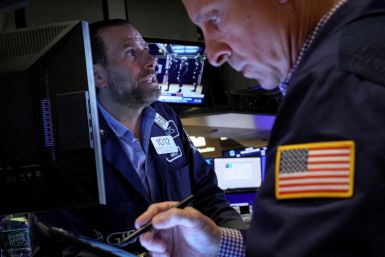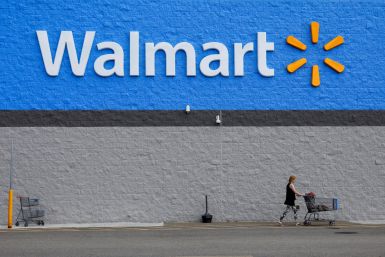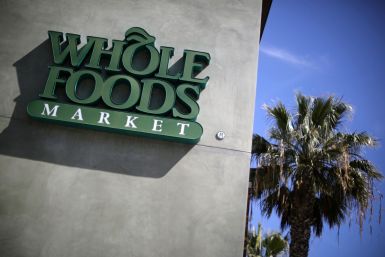China slashed holdings of U.S. Treasuries for a seventh consecutive month in June, Treasury department data released on Monday showed, with investors closely tracking this measure in the wake of tensions between the world's two largest economies involving Taiwan.
China's central bank cut its interest rates on Monday for the second time this year, but analysts suspect it will do little to spur lending in an economy awash with cash but lacking in consumer demand and business confidence.
The safe-haven U.S. dollar hit a one-week high on Tuesday after weak global economic data, particularly in China, reignited global recession fears and weighed on risk-friendly currencies like the Australian dollar.
The Philippine central bank will follow its surprise July rate hike with a half-point point rise on Thursday and another quarter-point increase in September to catch up with its peers in containing soaring inflation, a Reuters poll forecast.
When Hwang Kwang-jo's factory in Seoul faced a staffing crunch earlier this year after the departure of Nepalese workers and younger locals, he hired a 61-year-old to pick up some of the work.
New Zealand's central bank is expected to deliver its fourth straight half-point rate hike on Wednesday, but most economists see rates peaking below policymakers' forecast after the most aggressive tightening in two decades to tame soaring inflation.
Israel's annual consumer price index (CPI) rose to a higher than expected rate of 5.2% in July, the most since October 2008 and following a 4.4% rate in June, as more aggressive interest rate hikes loom and keep the soaring cost of living centre stage ahead of an election in November.
U.S. stock indexes fell on Monday, mirroring global markets, after weak economic data from China rekindled fears of an economic slowdown in the world's second-largest economy.
Nigeria's annual inflation quickened in July to its highest level since 2005, official data showed on Monday, driven by price rises for food, fuel and clothing.
Walmart Inc and Target Corp kick off retail earnings this week, and what the two biggest U.S.
According to a new study that takes a close look at U.S. states with the most businesses experiencing supply chain pressures, a big part of the problem is domestic.
China's fuel product exports will rebound in August to near the highest for the year so far after Beijing issued more quotas in June and July, although broader curbs are set to cap shipments at seven-year lows for 2022, analysts and traders said.
China's refined fuel exports are likely to sink in 2022 to the lowest in seven years as the country seeks to maintain ample domestic supplies while refinery output posts a rare decline.
Hedge funds slashed their long dollar positions and bet harder on a flatter yield curve, two macro trades that have come up trumps.
Thailand's economy expanded at the fastest pace in a year in the second quarter as eased COVID-19 restrictions boosted activity and tourism, but multi-year high inflation and China's slowdown remain a drag on the nascent recovery.
Japanese Prime Minister Fumio Kishida on Monday instructed his ministers to draw up additional steps to cushion the economic blow from rising living costs in a package due to be compiled next month.
The Bank of England will deliver another bumper 50 basis points (bps) increase to borrowing costs next month but then slow the pace to a more regular 25 basis point rise in November before pausing, a Reuters poll forecast.
Stood on her hind legs to greet any prospective owner who might approach her glass-doored kennel, Harriet is a black English cocker spaniel abandoned as a deepening cost-of-living crisis pushes growing numbers of Britons to part with their pets.
Who is right about recessions--Republicans or Democrats?
Colombia's trade with Venezuela could hit $1.2 billion this year, its commerce minister German Umana said on Friday, after the country's new President Gustavo Petro pledged to revive trading relations with its South American neighbour.
Whole Foods CEO John Mackey had some criticism for younger generations of workers on a recent podcast episode.
Optimism is seeping back into the U.S. stock market, as some investors grow more convinced that the economy may avoid a severe downturn even as it copes with high inflation.
U.S. import prices fell for the first time in seven months in July, helped by a strong dollar and lower fuel and nonfuel costs, while consumers' one-year inflation outlook ebbed in August, the latest signs that price pressures may have peaked.
The U.S. Federal Reserve's plan to unwind its bond-bloated balance sheet has taken a backseat to its dramatic interest rate hikes of recent months - but it may make a comeback at Jackson Hole.
Wall Street's main indexes rose on Friday, setting the S&P 500 and the Nasdaq for a fourth straight week of gains on easing bets of another super-sized interest rate hike on evidence of cooling inflation.
Irish house prices returned in June to levels not seen since the credit-fuelLed peak of 2007, after data on Friday showed further rapid rises that experts have this time attributed to a dearth of supply rather than an overabundance of credit.
Taiwan's economy is likely to grow at a slower pace this year that initially forecast, the statistics office said on Friday, lowering its outlook due to global inflation and slowing consumer demand in major markets.
Some of the world's biggest money managers are talking to investors and regulators about stripping Russian assets from their funds, helping them unlock billions of dollars of investments which became illiquid due to the war in Ukraine.
French maize crop conditions declined steeply last week to their lowest level in at least a decade, data from farm office FranceAgriMer showed, as a worsening drought and latest heatwave baked fields in the European Union's top grain producer.
Britain's economy contracted by less than feared in June, when public holidays had been expected to exert a big drag, although sectors most exposed to a worsening cost of living crisis, like retail and restaurants, struggled.



















































